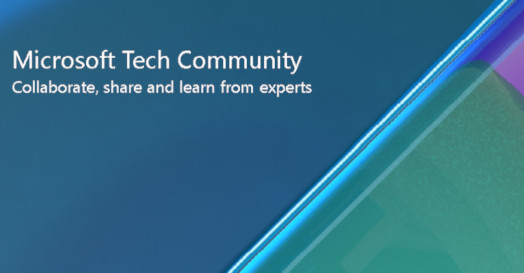Azure Service Fabric 8.1 Release

Azure Service Fabric 8.1 is now available!
We are excited to announce that 8.1 release of the Service Fabric runtime has started rolling out to the various Azure regions along with tooling and SDK updates. The updates for .NET SDK, Java SDK and Service Fabric runtimes will be available through Web Platform Installer, NuGet packages and Maven repositories in 7-10 days within all regions.
What is new in Service Fabric 8.1?
This release is loaded with key features and improvements. Some of the key features are highlighted below:
Key Announcements
- Added support for Auxiliary Replica
- (Preview) Added support for .NET 6.0 Service Fabric applications
- Added API support for updating application descriptions
- Added periodic ping between Reconfiguration Agent (RA) and Reconfiguration Agent Proxy (RAP) to detect IPC failure and process stuck
- Added support for liveness and readiness probes for non containerized applications
- Made cluster upgrade for node capacity updates impactless
Packages and Versions
- Service Fabric Runtime
- Ubuntu 16 - 8.1.320.1
- Ubuntu 18 - 8.1.320.1
- Windows - 8.1.316.9590
- Service Fabric for Windows Server
- Service Fabric Standalone Installer Package - 8.1.316.9590
- .NET SDK
- Windows .NET SDK - 5.1.316
- Microsoft.ServiceFabric - 8.1.316
- Reliable Services and Reliable Actors - 8.1.316
- ASP.NET Core Service Fabric integration - 8.1.316
- Java SDK
- Java for Linux SDK - 1.0.6
- Service Fabric PowerShell and CLI
- AzureRM PowerShell Module - 0.3.15
- SFCTL - 11.0.0
Current Breaking Changes
-
Service Fabric 7.2 and higher runtime drops support for .NET Core Service Fabric apps running with .NET Core 2.2 runtime. .NET Core runtime 2.2 is out of support from Dec 2019. Service Fabric runtime will not install .NET Core runtime 2.2 as part of its dependency. Customers should upgrade their .NET 2.2 runtime SF apps to the next .NET Core LTS version 3.1.
-
Guest executable and container applications created or upgraded in SF clusters with runtime versions 7.1+ are incompatible with prior SF runtime versions (e.g. SF 7.0).
Following scenarios are impacted:- An application with guest executables or containers is created or upgraded in an SF 7.1+ cluster.
The cluster is then downgraded to a previous SF runtime version (e.g. SF 7.0).
The application fails to activate. - A cluster upgrade from pre-SF 7.1 version to SF 7.1+ version is in progress.
In parallel with the SF runtime upgrade, an application with guest executables or containers is created or upgraded.
The SF runtime upgrade starts rolling back (due to any reason) to the pre-SF 7.1 version.
The application fails to activate.
To avoid issues when upgrading from a pre-SF 7.1 runtime version to an SF 7.1+ runtime version, do not create or upgrade applications with guest executables or containers while the SF runtime upgrade is in progress.
- The simplest mitigation, when possible, is to delete and recreate the application in SF 7.0.
- The other option is to upgrade the application in SF 7.0 (for example, with a version only change).
If the application is stuck in rollback, the rollback has to be first completed before the application can be upgraded again.
- An application with guest executables or containers is created or upgraded in an SF 7.1+ cluster.
Upcoming Breaking Changes
- .NET Core runtime LTS 2.1 runtime will go out of support from Aug 21, 2021. Service Fabric releases after that date will drop support for Service Fabric apps running with .NET Core 2.1 runtime. Service Fabric .NET SDK will take a dependency on .Net runtime 3.* features to support Service Fabric .NET Core apps. This has no impact on Service Fabric .NET Framework SDK.
For more details, please read the release notes.
Published on:
Learn moreRelated posts
Azure Developer CLI (azd): One command to swap Azure App Service slots
The new azd appservice swap command makes deployment slot swaps fast and intuitive. The post Azure Developer CLI (azd): One command to swap Az...